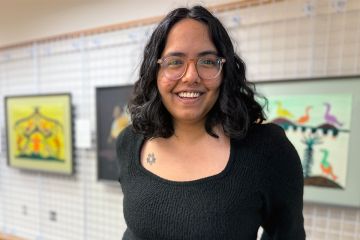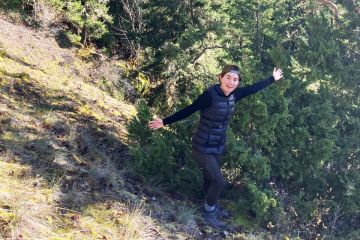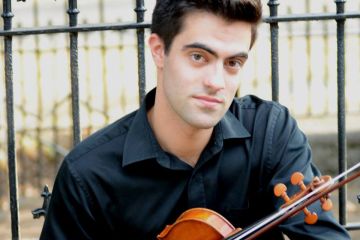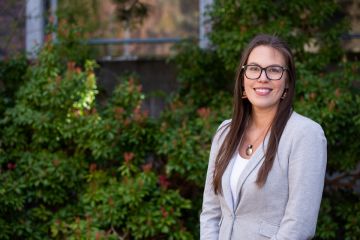Engineering grad aspires to be a role model for Indigenous students across campus
- Jody Kitts

When UVic’s new civil engineering program launched in 2013 with a clear focus on sustainability and Indigenous communities, it caught the attention of Kear Porttris.
The program’s emphasis on making the best use of natural resources and lessening environmental burdens—green buildings, sustainable cities, industrial ecology and water resources—was immediately appealing.
“This was no ordinary program, it had a completely different way of looking at engineering,” says Porttris. “I’m not interested in engineering for the number crunching, I’m interested in how engineering can solve the problems society faces. This program promised that.”
Porttris, who graduates this month as part of the program’s inaugural class of more than three dozen, chose engineering because he saw a direct path to professional success and financial stability.
Growing up in Regina, Porttris wasn’t sure what he wanted to do. He went to university after high school, but left after his first year. He also completed a business human resources diploma from a technical school but didn’t pursue a career in HR.
He eventually moved to Victoria, and nearly a decade after leaving high school, returned to university as a mature student.
“Coming back as a mature student gave me focus and direction,” he says. “It’s more powerful if you’re in university because you choose to be there.” By second year, he found it difficult juggling life as a single parent with a demanding academic program.
He credits the resources and staff at UVic’s First Peoples House for providing a support network, as well as help from other Indigenous students on campus and strong community support through the Métis Nation of Greater Victoria.
“I was reminded that we are never really alone, that there are people willing to help.”
He realized this was also true in his home life, and he asked his mother to move to Victoria to help with his daughter Abigail and enable him to balance school, single parenthood, working and volunteering in the community.
“As a parent, one of my most important jobs is to be a role model to Abi,” Porttris says. “I want her to grow up seeing me use my abilities to help people and solve problems that affect our communities.”
He’s made it his mission to also be a role model for Indigenous students across campus and in our communities.
Now, the time he spends at First Peoples House is as a volunteer and he was also involved with the LE,NONET Campus Cousin program, which supports new Indigenous students at UVic as they transition to university life.
“It’s important for me to give back,” he says. “I want Indigenous students to know what post-secondary education is really about from someone they can trust, who isn’t a parent or teacher. It’s important to me that they know—no matter what community they come from—that they’ll be supported at UVic the way I was.”
I want [my daughter] to grow up seeing me use my abilities to help people and solve problems that affect our communities.
Since finding his stride, Porttris hasn’t just succeeded—he’s become a leader. He was president of the Canadian Society of Civil Engineers—UVic Chapter, and is considered by some as the “elder statesman” of the inaugural class of the civil engineering program.
In the past few months, Porttris has been at a new crossroad, trying to decide on starting a job or continuing to a master’s degree.
“I want to work on projects that create better housing for Indigenous communities. I want to be involved in engineering that is driven by the needs of society.”
In the end his choice was clear: “I’ve decided I can make the greatest impact by pursuing graduate studies at UVic.”
Photos
In this story
Keywords: convocation, graduation, student life, engineering, Indigenous, civil engineering
People: Kear Pottris





